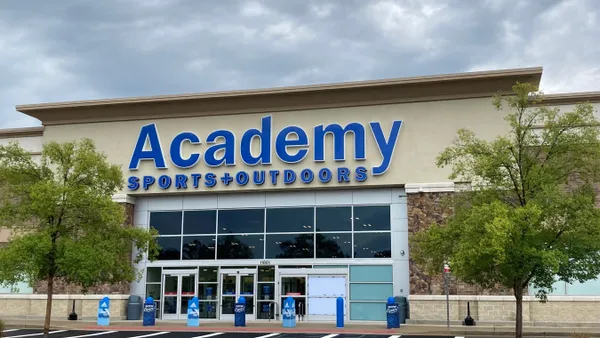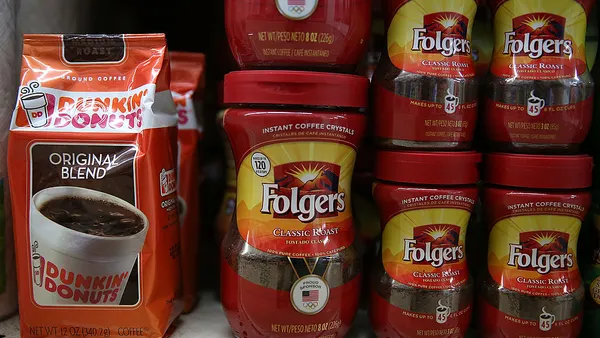Dive Brief:
- Fires in the Amazon, up 84% compared to the 2018 summer months, have compelled fashion brands H&M, Timberland and Vans to suspend orders of Brazilian leather, citing environmental concerns, CIPS reported.
- While summer fires due to natural causes are common, the significant year-over-year increase may be caused by the intentional clearing of land in order to open up space for cattle used in the sourcing of Brazilian leather and beef.
- While VF Corporation (VFC), which owns Vans and Timberland, contended its leather sourcing in the Amazon is "minimal," it will no longer source leather from Brazil until it has "confidence and assurance that the materials used in our products do not contribute to environmental harm in the country." H&M took a similar pledge, stating the ban will be in place "until there are credible assurance systems in place to verify that the leather does not contribute to environmental harm in the Amazon."
Dive Insight:
The fires, which necessitated a military response from Brazilian President Jair Bolsonaro, have stoked international protests over the failure to preserve the world's largest rainforest. And while this military effort has helped reduce the fires, which can number in the thousands, according to a Reuters report, the question remains as to the parties directly responsible for the destruction as well as the business interests behind them.
Brazil exported $1.4 billion worth of leather hides and skins in 2018, according to the Center for the Brazilian Tanning Industry (CICB), with the U.S., China/Hong Kong and Italy importing nearly 60% of the total amount. In addition, Brazil is the leading exporter of beef, generating over 19% of the world's total supply as of 2018, according to the USDA.
The high volume of demand in both categories drives a significant need for pasture lands. Per Reuters' report, the fires are believed to be started by real estate speculators and ranchers who are clearing out the land to increase capacity to herd the livestock for eventual slaughter. As the demand for these exports has risen — cattle head has increased nearly 200% from 1993 to 2013 — so too has the need for grazeable land on which to raise the cattle.
A report from Mighty Earth asserts companies Cargill and JBS are the most intrinsically tied to the fires, contending they create demand for beef. Cargill, which has had its own struggles in child labor violations, is a primary supplier to companies including McDonald's, Costco and Nestle. While the apparel companies' stance against the deforestation carries impact, a more unified effort by companies with high demands for beef and leather is likely necessary to reduce Brazil's fire catastrophe and ongoing rainforest deforestation.
VFC and H&M stated the sourcing impact of moving away from Brazil will have a minimal effect on their respective supply chains, and an H&M spokesperson told Dow Jones Newswire the "company sources the vast majority of its leather from Europe." While a company such as H&M can pivot to alternate sourcing options, Brazil's place as a leading exporter of leather and beef indicates other firms, particularly meat packing producers who rely on the cattle supply, may have a much more difficult time adapting to social pressures from the deforestation.
Apparel companies have become increasingly aware of the impact sustainable sourcing has on their brands. Patagonia has become proactive rather than reactive in its approach, using its sourcing as part of its branding. H&M recently promised to transition to 100% sustainable cotton by 2020, a pledge that led the way for it to take a public stance on imports from Brazil. The idea is self-evident that ethical sourcing is the clothing some brands now consciously wrap themselves in, as they produce apparel for consumers to do the same.














